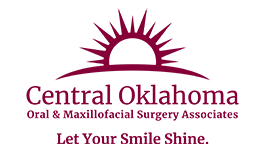15 Jan How can I avoid dry socket after wisdom tooth removal?
 Having one’s wisdom teeth removed is a common procedure performed by an oral surgeon. This treatment is common because wisdom teeth are typically very problematic to oral health. The retention of these teeth (also called third molars) can increase one’s risk for dental caries, periodontal disease, and abscesses, which are painful infections that affect the roots of teeth and gums. Recovering after the extraction of third molars is a relatively fast recuperation. The most common complication after tooth extraction is the development of a dry socket. Although this complication is minor, it is preventable.
Having one’s wisdom teeth removed is a common procedure performed by an oral surgeon. This treatment is common because wisdom teeth are typically very problematic to oral health. The retention of these teeth (also called third molars) can increase one’s risk for dental caries, periodontal disease, and abscesses, which are painful infections that affect the roots of teeth and gums. Recovering after the extraction of third molars is a relatively fast recuperation. The most common complication after tooth extraction is the development of a dry socket. Although this complication is minor, it is preventable.
Preventing dry socket means that patients will need to avoid touching the site of extraction with their fingers or tongue as this can dislodge the blood clot that forms over the empty tooth socket. This blood clot is needed to regenerate new soft tissue and ultimately heal. Knocking the blood clot loose will cause dry socket and this can greatly slow down the recovery process as well as produce discomfort. If dry socket forms, patients will return to our practice so that our oral surgeon can gently reopen the tissue so that another blood clot can form to reinitiate the healing process. After any procedure, including a tooth extraction, our team provides post-operative instruction both verbally and in take-home packets. We do this so that our guests can enjoy comfortable and fast recoveries.
What happens if I retain my wisdom teeth?
For most patients, the retention of third molars is not recommended. This is because wisdom teeth erupt during adulthood whereas the rest of adult teeth come in during childhood. Since all other permanent teeth are well established, there is often inadequate room for wisdom teeth to come through the gums upright. Instead, they will crowd existing teeth or become stuck in the gums. When wisdom teeth are stuck in the gums, they put a patient at a much higher risk for the development of serious oral diseases. By extracting these teeth, our team can help prevent a number of oral health conditions.
Contact Central Oklahoma Oral & Maxillofacial Surgery Associates today to schedule a consultation with our caring team!
